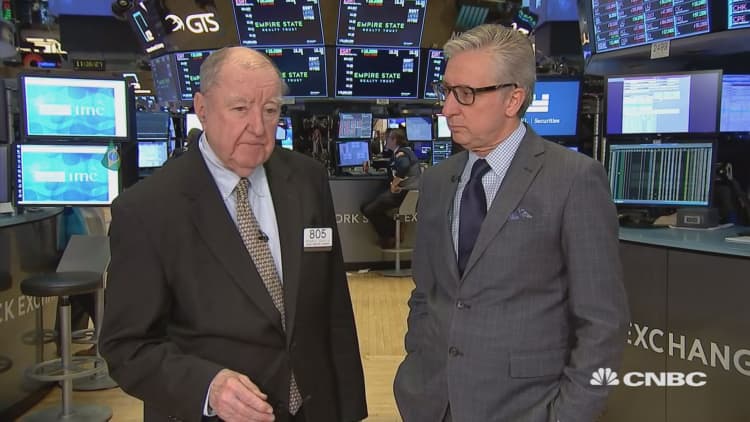Bond yields could be driven "sharply" higher if China deploys the so-called "nuclear option" in its escalating trade war with the U.S., a senior strategist told CNBC Tuesday.
Torchwood Capital Senior Advisor Giles Keating told CNBC's "Squawk Box Europe" that Chinese excess savings had flooded into capital markets and had driven yields down.
"If that is now reversed, because China stops buying all those Treasurys, then bond yields can, I'm afraid, move up really sharply," he added.
While such a move could potentially trigger a massive rise in interest rates on U.S. government debt, causing plenty of damage to the U.S. economy as they are a benchmark for all sorts of loans, other analysts have suggested it is unlikely due to the pain it could inflict on home soil.
BlackRock head of Asian Credit, Neeraj Seth, told "Squawk Box Asia" Tuesday that while China may not be aggressively buying more U.S. government notes, it is not actively selling in the market either.
China still holds about $1.13 trillion of U.S. Treasurys, a 4% decline over a 12-month period, but that this is "nothing significant," he said.

He also dismissed the possibility of China looking to swap Treasurys with other government notes, adding that there aren't enough "high-quality risk-free assets" on the market.
This sentiment echoed a note Monday from Deutsche Bank macro strategist Alan Ruskin, who suggested such a move would be too disruptive for the world's second-largest economy.
"The 'dissolution of Chimerica' includes a retreat from China's central role in supply chains, but also China's supply of cheap U.S./global financing," Ruskin said in a research note.
He highlighted that the latter has been drying up anyway after China reserves topped out in 2014, adding that the "difficulties in finding liquid market alternatives is central to China's reserve allocation dilemma."
Ruskin projected that a "dumping" of Treasurys would be "disruptive for all markets inclusive of China's own reserve assets and even more important its own asset markets," and said the much more likely approach is a "slow structural bleed" in China's U.S. bond holdings.

